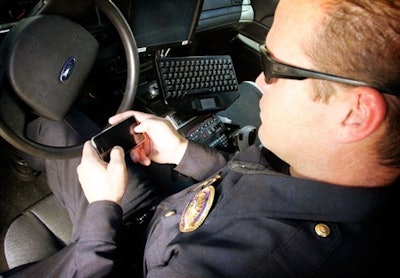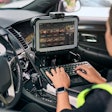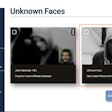
Smartphones are a valuable technological tool that can help law enforcement officers work more efficiently, but they should be used with caution. Do not assume that information transmitted from your smartphone will only be viewed or listened to by the original recipient. The law may require that your smartphone records be disclosed to a defense attorney.
Defendants are entitled by law to know about evidence that can help them to attack the government's case. Information that must be disclosed to the defense is referred to as discovery material. Depending upon the facts and circumstances in which your smartphone was used, discovery material could include your smartphone records.
Because smartphone technology is relatively new, the Supreme Court has not decided a case that specifically addresses the question of what types of law enforcement smartphone records are discovery material. Therefore, there is no controlling precedent, and the law can vary from one jurisdiction to another. However, there are two Supreme Court cases that do describe the types of information that must be disclosed to defendants: Brady v. Maryland and United States v. Giglio. Under Brady and Giglio, some LE smartphone records are indeed discovery material.
Under Brady, the government must reveal to the defense any exculpatory evidence known to the government. Exculpatory evidence is evidence that casts doubt on the defendant's guilt or that might reduce the defendant's punishment. For example, if you used a smartphone field reporting application to report a suspect's description, and the person who eventually was arrested for the crime did not look like the suspect you described, your report would be considered exculpatory evidence. The defense could argue that the smartphone record supported that someone other than the defendant committed the charged offense. Another example of exculpatory evidence would be if a LE smartphone record supported a defendant's alibi or an affirmative defense such as entrapment or self-defense.
The defense does not need to request Brady material. If the government knows of any exculpatory material, the government must disclose this information to the defense in a reasonable amount of time so the defense has an adequate opportunity to prepare for trial.
Defendants also are entitled to any information that tends to impeach any government trial witness, including law enforcement officers. This disclosure is required under United States v. Giglio. Impeachment is information that makes a witness appear biased or untruthful, or that in some other way makes the witness seem less believable. The derogatory information about the witness does not have to pertain to activities related to the defendant's case.
If the impeachment material involves smartphone records, those records may have to be disclosed to the defense. For example, if a law enforcement officer were subject to an administrative inquiry because he claimed to be on duty at a particular time, conducting official business, but his smartphone records showed that he was lying, the smartphone records would be impeachment material. An example of impeachment material that shows bias would be if an officer used a smartphone to send e-mails that contained racist messages or ethnic slurs.
Disclosure requirements under Giglio are not as automatic as they are under Brady. For instance, information that shows a law enforcement officer lied during an investigation or during an administrative inquiry, or committed misconduct, is impeachment information that is discoverable under Giglio, but defense attorneys do not have an automatic and unrestricted right to see your personnel files.
First, the prosecutor should review the personnel file. Then, the prosecutor determines what information must be disclosed to the defense. If the prosecutor is unsure if the material is discoverable under Giglio, he or she should produce that information to the judge for an in camera inspection (only the judge will see it). The judge determines whether the defense will get the information.
There are other legal ramifications when LE officers use smartphones. Some suspects allege that their civil rights were violated by police. These suspects may become plaintiffs in civil suits that assert common law tort or Section 1983 claims against officers and their employers. For instance, violations of the danger creation doctrine, violations of the Fourth and Fourteenth Amendment Rights to Bodily Privacy, Section 1983 Liability for the Acts of Others, Conspiracy Liability, and Liability for Failure to Prevent Harm to Others.
A plaintiff does not have to have been a suspect to prevail in a civil suit against police. And depending upon the facts and circumstances, LE smartphone records could become evidence that would support the plaintiff's case.
For example, in the middle of the night, police arrive at a residence to conduct a search. Police tell the plaintiff to wait outside, and he objects because the neighborhood is dangerous at night. An officer uses his smartphone to request backup, but backup never arrives. Police order the plaintiff to wait outside. While he is outside without a police escort, he is robbed and beaten by a passerby. The LE smartphone record supports the plaintiff's allegations that the police placed him in danger, and the police may be liable for the plaintiff's injuries.
If you exercise common sense, using a smartphone should not get you in legal trouble. Use your employer-issued smartphone for official business only, and do your job with integrity.














